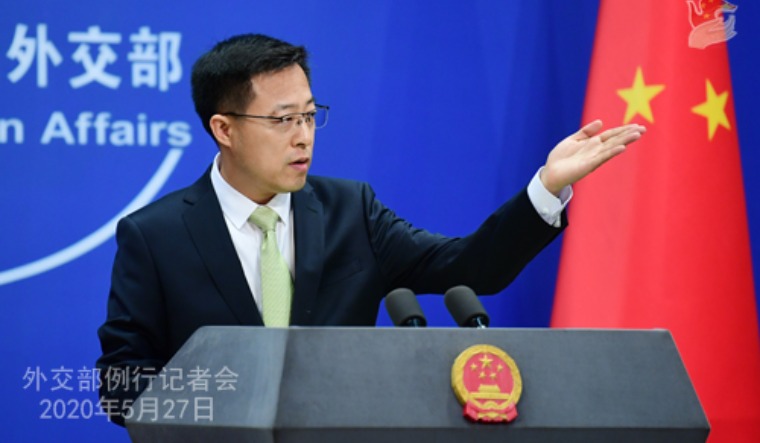Reacting to the Quadrilateral summit recently held on Friday, China said no "small cliques" should be formed, and accused some countries of trying to "sow discord" among regional nations by "hyping" the "China threat". US President Joe Biden, Prime Minister Narendra Modi, Australian Prime Minister Morrison and Japanese Prime Minister Yoshihide Suga had attended the virtual summit, which is the first conclave of the top leaders of the Quadrilateral alliance, on Friday. They had announced that a "free and open" Indo-Pacific is essential to their countries, and vowed that they were committed to achieve stability.
"The United States should treat China and China-US relations in a right mentality and in an objective and rational manner, stop interfering in China's internal affairs, and work with China to focus on cooperation, manage differences, and place China-US relations back on the track of healthy and stable development," Chinese foreign ministry spokesman Zhao Lijian told a media briefing.
"Certain countries should shake off their Cold War mentality and ideological prejudice, refrain from forming closed and exclusive small circles, and do more things that are conducive to solidarity and cooperation among regional countries and regional peace and stability," he said.
The 'China threat'
The evolving situation in the Indo-Pacific region in the wake of China's increasing military muscle-flexing has become a major talking point among leading global powers. The US has been favouring making Quad a security architecture to check China's growing assertiveness. China is engaged in hotly contested territorial disputes in the South and East China Seas. Beijing has also made substantial progress in militarising its man-made islands in the past few years.
Beijing claims sovereignty over all of the South China Sea. But Vietnam, Malaysia, the Philippines, Brunei and Taiwan have counterclaims. In the East China Sea, China has territorial disputes with Japan. Both maritime areas in the South and East China seas are rich in minerals, oil and other natural resources and are also vital to global trade.
In a joint op-ed in The Washington Post, the four Quad leaders had asserted that all countries should be able to make their own political choices, free from coercion. "To strengthen our quest for a region that is open and free, we have agreed to partner to address the challenges presented by new technologies and collaborate to set the norms and standards that govern the innovations of the future," they wrote.
The Quad summit, among other things, finalised a landmark initiative under which huge investments will be made in India to create additional production capacities to roll out a billion coronavirus vaccine doses by 2022 for exports to the Indo-Pacific region, seen as a significant step to counter China's expanding vaccine diplomacy.
"We will combine our scientific ingenuity, financing, formidable productive capacity and long history of global-health partnership to surge the supply of life-saving vaccines, in close collaboration with multilateral organisations including the WHO and Covax Facility," they wrote.
Emphasising that the Quad nations' foundations of democracy and a commitment to engagement unite them, the four leaders concluded saying, "We know we can provide for the safety and prosperity of our people at home by confronting global crises together, with purpose and resolve."
"We summon from tragedy the strength and resilience to unify and overcome. And we recommit ourselves, once again, to an Indo-Pacific region that is free, open, secure and prosperous," they said.




